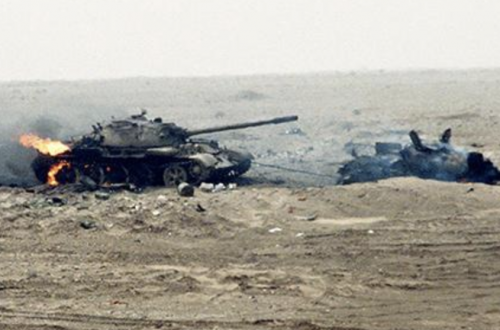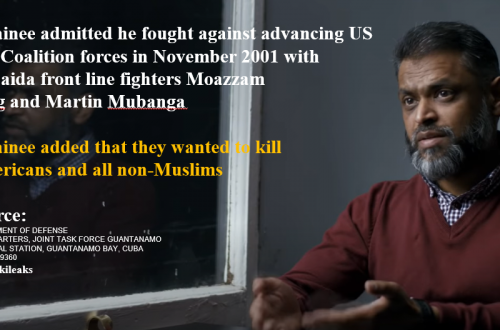The name Matti Friedman should ring some bells for regular HP readers. He is the former AP journalist who almost broke the internet with his two articles exposing the way AP covered the Israel Palestine conflict. His speech at the BICOM dinner last year gave the impression of being allowed into the machinations going on behind the scenes on the way the Middle East is reported.
Friedman also won the prestigious Sami Ruhr prize for his book The Aleppo Codex in 2014 so it was with some enthusiasm that I bought his newest book Pumpkin Flowers. The “Pumpkin” was the code name for an outpost in the Israeli established security zone in South Lebanon he served in. Flowers was radio code for casualties. In the opening pages Friedman describes his work as follows:
“This book is about the lives of young people who finished high school and then found themselves in a war— in a forgotten little corner of a forgotten little war, but one that has nonetheless reverberated in our lives and in the life of our country and the world since it ended one night in the first spring of the new century. Anyone looking for the origins of the Middle East of today would do well to look closely at these events.”
He split the book into three parts saying:
“Part 1 is about a series of incidents beginning in 1994 at the Israeli army outpost we called the Pumpkin, seen through the eyes of a soldier, Avi, who was there before me. Part 2 introduces two civilians, mothers, who helped bring about the unraveling of the military’s strategy. Part 3 describes my own time on the hill, and the experiences of several of my friends in the outpost’s last days. The final part recounts my return to Lebanon after these events had ended, in an attempt to understand them better.”
Friedman’s prose is superb, his writing is elegant, the words glide from the page making this an enjoyable and oh too short read. I was left at the end wondering where the rest was. Of the three parts Friedman writes almost lovingly of the Israeli soldiers he never met who served in the Pumpkin before him. His descriptions of their lives are written with such sensitivity and even sentimentality that one would think he knew them intimately. His descriptions of Avi gave the impression that I knew him and more importantly made me want to know more of him:
Basic training is like marriage: inside its unforgiving intimacy you can’t hide who you are for long. Soon Avi softened. It turned out that he always had books in his knapsack, and when he saw he wasn’t alone he began passing them around. One picture of Avi as a child shows him asleep on his bed surrounded by books and newspapers, and another, taken a few years later, shows him sitting on one side of a room reading at his own birthday party.”
And this is when Friedman is at his best. He’s at his worst in Part Two because despite his fluid style you can feel that he isn’t with the mother’s whose campaign he says resulted in the Israeli withdrawal from Lebanon. Although he paints sympathetic pictures of them, he isn’t with them in the way he is with the soldiers whose literary portraits he writes. This makes the second part feel…awkward as if he knows this part of the story is important but resents having to include it. It reads here as if he’s desperately trying to convince himself that it made sense to these women at the time:
Today that writer’s call for mothers to stop the war reads like a crude appeal to sentiment, but in that hopeful decade of the new Middle East, and especially in the shock of the helicopter crash, it had power. To Bruria it seemed urgent. This was not just because one of the Alter kids was dead and other kibbutz kids were on the line, but because her own youngest son, Ofer, had just been drafted and was headed for Lebanon too.”
It must be odd indeed for Friedman to see this mighty force Hezbollah as it is now and remember the hit and run tactics of the Hezbollah he fought against. He dwells on the possibility that having future generations of Israelis carrying out the same duties he did ad infinitum would have been better than vacating the zone in 2000. It’s a view he ponders and one he seems to hold but not one he states explicitly.
And the thing is that reading the book I enjoyed going on Friedman’s journey but am frustrated that he never seemed to find the answers he was looking for. And he looked hard, even going back to Lebanon as a civilian and going back to his sacred moment in time, the Pumpkin, now sporting a ragged Hezbollah flag and a hooker carrying out her business.
The more cynical among you might wonder what he hoped to find by going back there but I was with him. I got it. While carrying out operations in Nablus I often wondered if one day i’d be able to return, if one day I could point to a particular rooftop and tell my at the time imaginary child that that’s where they shot at Daddy from but that it would be peace time and the thought of it all for my child would be inconceivable. But I never actually went back to Nablus to see it.
These places you serve in while wearing green have an air of the mystical about them, sometimes when you leave you wonder if you were ever really there. The things you did there are so utterly divorced from everything that comes before and everything that goes after that you’re tempted to go back just to prove to yourself you didn’t imagine the whole experience. And back he goes, where of course nothing at all is waiting for him. And then the book ends, suddenly and without drama and without any real conclusions the book is done.
This book reads as Friedman’s quest for meaning, but just like his experience in the military it comes off unsatisfying, with a sudden ending that you leaves you looking for meaning. All of the deaths, the cold nights in the field, the artillery barrages he sat through, the convoys and the helicopter journeys to the Pumpkin, we read about all of them and feel his need for it all to mean something and see perhaps more clearly than him that he never found that meaning. The spin Friedman puts on the IDF experience in Lebanon is that it had IEDs and jihadi videos of IEDs killing people and of terrorists killing people and that to understand the Middle East of today one needs to look at that period of time.
I don’t buy it. The effects of propaganda are well known and were used to great effect by armies and guerrilla movements long before the IDF was in Lebanon. Journalists from the BBC parachuted into occupied France during World War II and the Vietnam war is infamous for the effect TV cameras had on morale back home. In the 1980s the Mujahideen in Afghanistan also videoed their successes and IEDs have been around for decades. Yes there are technical changes that came about but Friedman never convinces me of his case for the importance of the security zone for understanding the Middle East. And the thing is I don’t really feel like he tried very hard. It’s almost as if you can hear someone in the publisher’s office saying “yeah Matti it’s a nice memoir and everything but you’ve gotta give us something more, some new angle that makes your take on war more relevant than some other soldier’s”.
Really this book is about a man trying to make sense of his military service and how that service influences the way he looks at the Middle East today. For him it’s all about Lebanon because that’s where he served. When I look at the Israel of today I’m convinced it all goes back to the al Aqsa Intifada, it’s the lens through which I view Israel because it’s the conflict I spent my formative years going through. The security zone is Friedman’s and I can’t escape the conclusion that he needs that time to mean more than it does or else accept that the question what was it all for? Is answered with one word; nothing.
Pumpkin Flowers is the author’s attempt to solve the riddle of his own service in Lebanon, to understand why he spent those years in a bunker on a hill that became irrelevant the instant the IDF withdrew. Though he spends a sizeable chunk of time assuring us that his war on Israel’s northern border, or just beyond it, was in some way relevant to the wars fought in Iraq and Afghanistan it wasn’t. But it was relevant to him, to his life and to the lives of the soldiers who served, fought and died there and their families. He places his own conflict in Lebanon at the heart of the conflicts he sees going on around him now.
And at the end there are no answers to be had, not even an ending to his own story.


